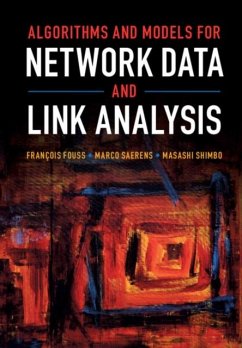Network data are produced automatically by everyday interactions - social networks, power grids, and links between data sets are a few examples. Such data capture social and economic behavior in a form that can be analyzed using powerful computational tools. This book is a guide to both basic and advanced techniques and algorithms for extracting useful information from network data. The content is organized around 'tasks', grouping the algorithms needed to gather specific types of information and thus answer specific types of questions. Examples include similarity between nodes in a network, prestige or centrality of individual nodes, and dense regions or communities in a network. Algorithms are derived in detail and summarized in pseudo-code. The book is intended primarily for computer scientists, engineers, statisticians and physicists, but it is also accessible to network scientists based in the social sciences. MATLAB(R)/Octave code illustrating some of the algorithms will be available at: http://www.cambridge.org/9781107125773.
Dieser Download kann aus rechtlichen Gründen nur mit Rechnungsadresse in A, B, BG, CY, CZ, D, DK, EW, E, FIN, F, GR, HR, H, IRL, I, LT, L, LR, M, NL, PL, P, R, S, SLO, SK ausgeliefert werden.


